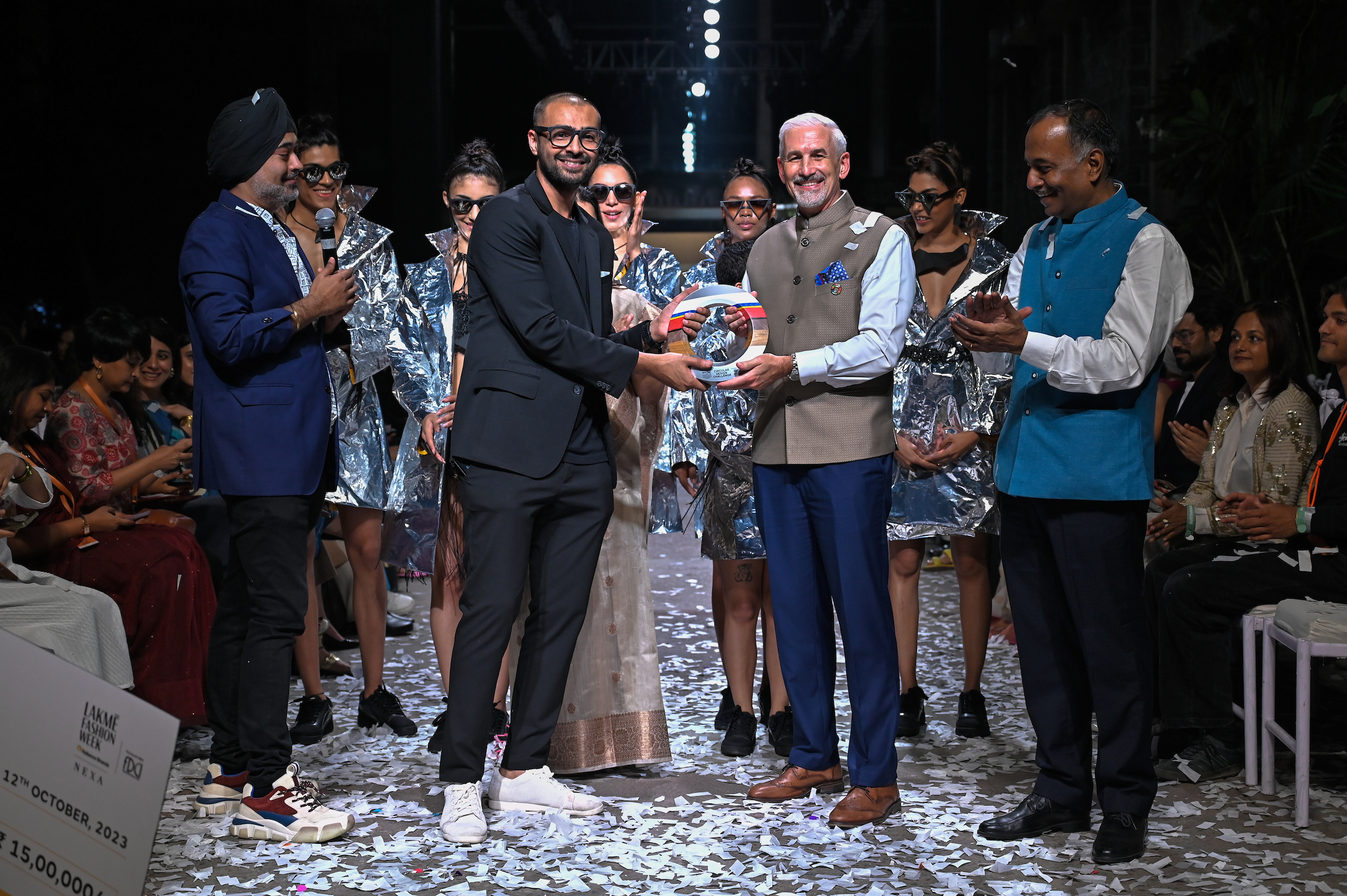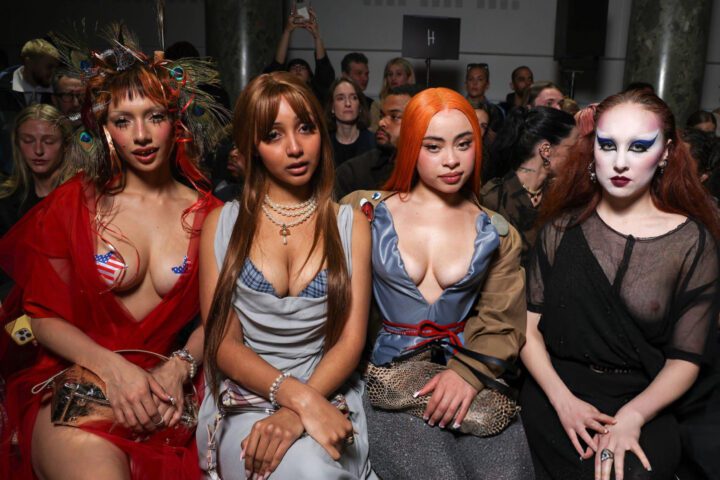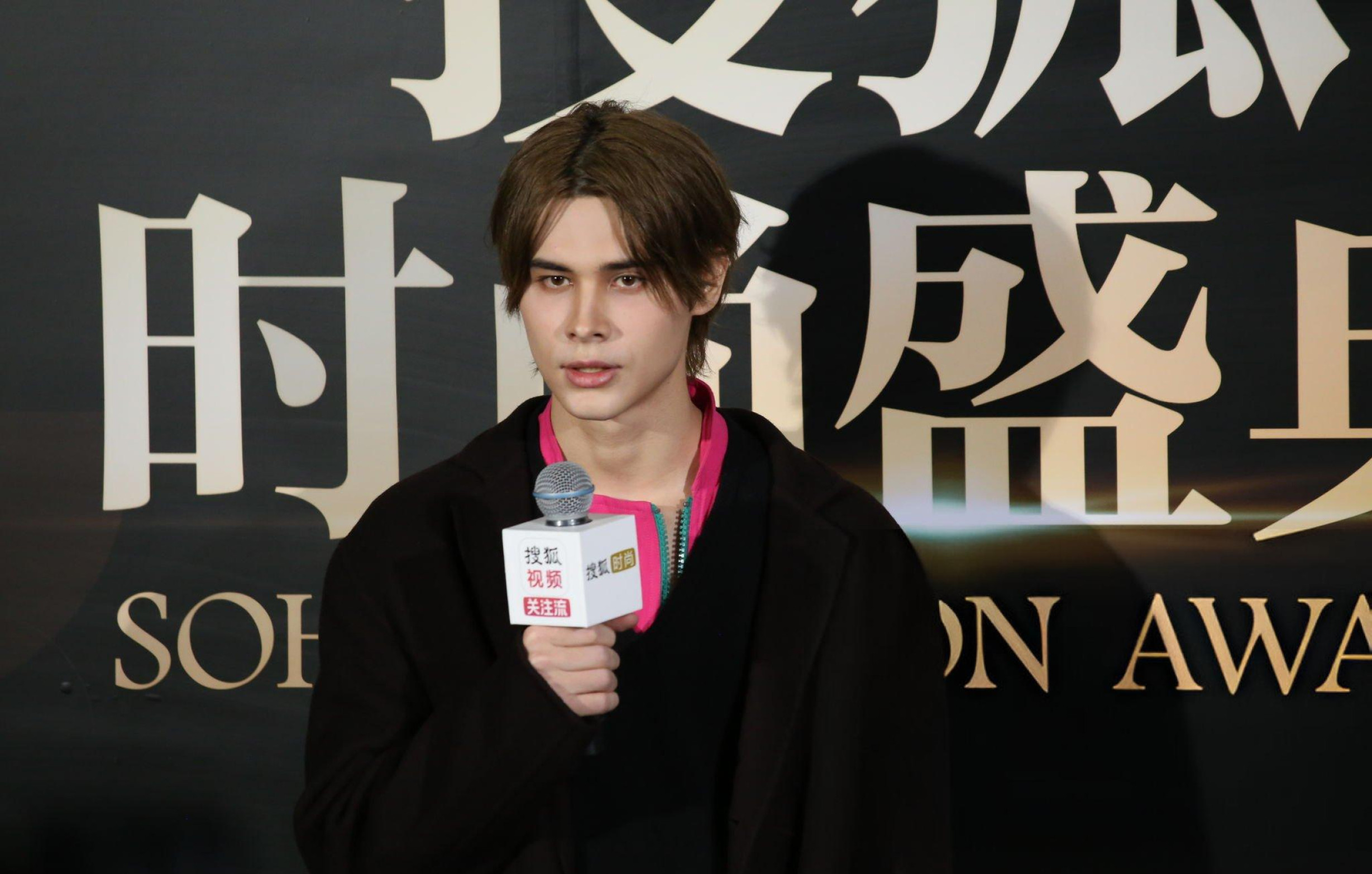Anish Malpani of ‘Without’ Label Triumphs in India’s Largest Sustainability Award
Designer Anish Malpani, the creative mind behind the ‘Without’ label from India, has emerged victorious in the 5th Circular Design Challenge (CDC). This prestigious accolade is India’s foremost sustainability award, organized by R|Elan™, the next-gen fabric brand under the umbrella of India’s largest conglomerate, Reliance Industries Limited (RIL), in collaboration with the United Nations in India.
An Expansion of Sustainability in the Global Fashion Arena
The CDC aims to provide a global platform for fashion designers to showcase their talents while promoting sustainability in both design and production. The overarching goal is to reduce waste and pollution and encourage the recycling of products. Notably, the CDC has expanded its footprint, reaching regions like the European Union, the United Kingdom, and the Asia-Pacific.
Championing Circular Fashion and Sustainability
The Circular Design Challenge (CDC) stands as India’s premier award for fashion designers and entrepreneurs, celebrating circularity, sustainability, and innovation within the fashion and textile industries. Recognizing the detrimental environmental impact of the fashion and apparel sector, CDC strives to transform this ecologically intensive field. It advocates for acknowledging India’s heritage, creating fashion labels with social impact, and embracing a circular manufacturing model to promote sustainable practices and mitigate extractive impacts on the environment.
A Legacy of Environmental Champions
Initiated five years ago by Reliance Industries and the United Nations, the CDC has nurtured, mentored, and celebrated environmental champions committed to sustainable design and manufacturing practices. It has also been a driving force in encouraging sustainable production and consumption.
Past winners have showcased remarkable innovations such as ‘I Was A Sari,’ which upcycles discarded saris while empowering women artisans, ‘Malai Biomaterials Design,’ which offers sustainable alternatives to leather, ‘Bandit,’ masters in the art of upcycling materials into eco-friendly products, and ‘Pieux,’ focusing on recycled materials and modular garment construction. The platform has supported 25 alumni through workshops and networks, gradually transforming the fashion ecosystem.
A Global Endeavor with Diverse Partnerships
The CDC’s international reach includes partnerships with the British Council for the UK, Redress for Hong Kong/Asia Pacific, and Istituto Marangoni for the European Union.
The Rewards and Recognition
As this year’s winner, Anish Malpani received a grant worth INR 15 lakhs, the prestigious CDC trophy, and a six-month mentorship program. Moreover, Anish will enjoy a standalone showcase at the upcoming Lakmé Fashion Week in partnership with the Fashion Design Council of India in March 2024. Felipe Fiallo, the runner-up, was awarded INR 5 lakhs and will also benefit from mentorship by Orsola de Castro, Co-founder of Fashion Revolution and Creative Director of Estethica.
A Distinguished Panel of Judges
Since 2018, CDC champions have been selected through an annual competition judged by industry leaders and the United Nations India teams. This year’s jury for the final contest featured notable figures, including Atul Bagai, Country Head of the United Nations Environment Programme (UNEP) India Office, Christine Goulay, Founder of Sustainabelle Advisory Services and former Head of Sustainable Innovation at Kering group, Aditi Mayer, Sustainability Activist & Photojournalist; and Rahul Mishra, Fashion Designer.
Shaping a Sustainable Future
The Circular Design Challenge illustrates how the fashion industry, the broader fashion ecosystem, and multilateral organizations such as the United Nations can collaborate to bring about significant change towards circularity and sustainable thinking. This initiative aligns with the principles of Mission LiFE (Lifestyle for Environment), championed by the Prime Minister of India, Narendra Modi, which emphasize responsible production and consumption.
Global Recognition
Ms. Meenakshi Lekhi, Honorable Minister of State for External Affairs and Culture, emphasized the importance of collective action, stating, “Each one has a responsibility, and each one has to participate, and each one needs to practice, and not just preach, be part of Mission Life.”
Pioneering Sustainability
Hemant D. Sharma, Sector Head of Polyester at RIL, praised the CDC as a remarkable initiative to promote circularity in material usage by Reliance Industries. He highlighted the role of the CDC in promoting circularity and sustainability within the Indian fashion industry. After four successful editions in India, CDC has now embarked on an international journey to promote sustainability and the global adoption of a circular economy.
The Power of Fashion for a Sustainable Future
Shombi Sharp, UN Resident Coordinator, India, highlighted the significance of the Circular Design Challenge in addressing critical planetary challenges like pollution, biodiversity loss, and climate change. Fashion, as demonstrated by the CDC, can be a catalyst for responsible production and consumption, blending style with sustainability. This initiative aligns with the global Lifestyles for Environment (LiFE) movement, endorsed by the G20, emphasizing environmentally conscious lifestyles and consumer choices.
Elevating Sustainability on the Global Stage
Jaspreet Chandok, Group Vice President of Reliance Brands, which organizes Lakme Fashion Week in partnership with the Fashion Design Council of India, spoke about taking the CDC to the global stage. He emphasized the growing participation and appreciation for the CDC, turning it into the largest sustainability platform in India. The focus now is on expanding this platform on an international scale, inviting creative minds from around the world to join in promoting sustainable fashion.
Fostering a Culture of Circularity
Cristina Cancer, Head of Alumni, Career Service & Industry Relationship at Istituto Marangoni, expressed pride in Felipe Fiallo as the runner-up. Istituto Marangoni, as a leading institution in fashion education, aims to nurture the new generation of designers with a focus on circularity and sustainability. Felipe’s commitment to sustainability and recycling aligns perfectly with the values of this new eco-conscious culture.
The Innovative Collections by the Six Finalists
Let’s delve into the outstanding collections presented by the six finalists of the CDC.
‘Without’ by Anish Malpani – India
Anish Malpani’s ‘Without’ label brought eyewear fashion to the forefront with a revolutionary patent-pending technology. The brand transformed discarded Multi-layered Plastic Packaging (MLP) into stylish sunglasses with a strong emphasis on functionality. These sunglasses are UV polarized, comfortable, and durable, showcasing the circular essence of ‘Without.’ This brand not only offers fashionable eyewear but also empowers waste pickers, fostering guilt-free consumption.
Felipe Fiallo – European Union
Ecuadorian national Felipe Fiallo, based in Italy, introduced an impressive footwear line that seamlessly combines digital fabrication, style, and sustainability. His designs are unconventional, drawing inspiration from nature through biomimicry, while integrating technology and craftsmanship. Fiallo’s footwear collection includes knee-high boots and futuristic ankle booties with a distinct space-age vibe.
‘Banofi’ + Studio Beej by Jinali Mody and Arundhati Kumar – India
Jinali Mody and Arundhati Kumar, creators of Studio Beej, introduced ‘Banofi,’ a groundbreaking plant-based leather made from banana crop waste. Their collection, aptly named “Biparita,” represents an innovative fusion of bio-research, Indian craftsmanship, and environmental awareness. Rooted in Bengal, their designs are completely vegan, cruelty-free, and environmentally conscious. ‘Banofi’ offers a range of stylish accessories, including bags, clutches, folders, portfolios, tags, and more, all crafted from this innovative plant-based leather.
Studio Medium by Riddhi Jain – India
The ‘Studio Medium’ brand, led by Riddhi Jain, is renowned for its expertise in Bandhani creations. However, the production of these exquisite designs typically generates thread waste and textile offcuts, causing environmental concerns. To address this, ‘Studio Medium’ transformed discarded silk offcuts and yarns into stylish garments. Their offerings, including long-sleeved jackets and coats, feature abstract weaves and multi-hued designs, exemplifying their commitment to zero waste and inventive designs.
Amesh Wijesekera – United Kingdom
Sri Lankan designer Amesh Wijesekera, based in London, collaborates extensively with artisans in Sri Lanka, specializing in knitwear, crochet, and handloom. By working with factory surplus fiber, Amesh aims to reduce clothing waste and support an industry often plagued by unethical practices. His men’s wear collection features vibrant, multi-colored trench coats and biker jackets with contrast sleeves, all reflecting innovative weaves and a commitment to sustainability.
Pei-Wen Jin – Asia Pacific
Pei-Wen Jin’s ambition has always been to perfect the art of zero-waste designing for a circular future. As the runner-up at the Redress Design Awards 2021, the world’s largest sustainable fashion design competition, Pei-Wen is acutely aware that 80% of the environmental impact occurs at the inception stage of a product. Her collections feature mix-and-matched, layered creations, including maxi skirts, asymmetrical tunics, and midis with frilled gilets. Vivid colors, stripes, and intricate detailing define her sustainable and eco-conscious designs.
A Shared Vision for a Sustainable Future
The Circular Design Challenge (CDC) has not only celebrated the remarkable talent of these designers but has also demonstrated the power of collaboration between industry, the fashion ecosystem, and international organizations like the United Nations. Together, they are driving change towards a more sustainable and circular approach to fashion, aligning with global initiatives like Mission LiFE.
As the fashion industry plays a pivotal role in promoting responsible production and consumption, the CDC is at the forefront of advocating for environmentally conscious lifestyles and consumer choices, echoing the global Lifestyles for Environment (LiFE) movement.
The CDC’s significance lies in its potential to bring about a positive impact on a global scale. It showcases India as a leader in sustainable culture and climate action, and its influence is expected to resonate worldwide.
With support from partners like R|Elan™ and the United Nations in India, the Circular Design Challenge is set to become a beacon of sustainability, furthering the cause of sustainable fashion on an international stage. Creative minds from around the world are invited to join this mission, collectively promoting a more sustainable and eco-conscious fashion industry.
In conclusion, the Circular Design Challenge is not merely a fashion competition but a platform for change, a catalyst for sustainable thinking, and a symbol of India’s leadership in the global movement towards sustainable and circular fashion. As these innovative designers have shown, fashion can be a powerful force for good, combining style with a commitment to preserving our planet for future generations.





